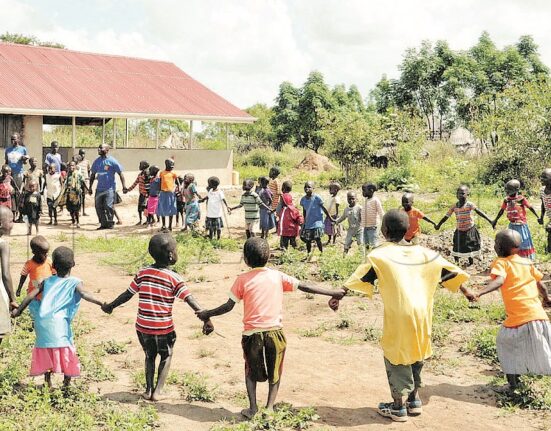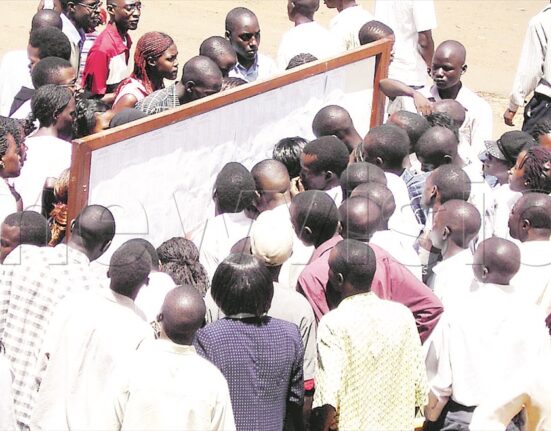This article was first published on the New Vision website on May 19, 2023
By John Masaba
Six African universities, including Uganda Christian University (UCU) and Makerere University, are now part of a consortium to implement a sh3.3b (about € 799,974) project focused on building capacity for reporting migration and mobility across borders in Sub-Saharan Africa.
Titled Communicating Migration and Mobility-E-Learning Programmes and Newsroom Applications for Sub-Saharan Africa (CoMMPASS), the project seeks to expand learning access, including for migrants and refugees.
It is funded by the European Commission which represents the European Union.
CoMMPASS supports the research, training and implementation roles of six Higher Education Institutions (HEIs) in Uganda, Malawi and Burkina Faso.
It is coordinated by Professor Susanne Fengler from the Technische Universitat Dortmund (TUDO) and will kick off with an inaugural conference planned for June 6-9, 2023 and hosted by Makerere University.
The project conceptualizes a Massive Open Online Course (MOOC) curriculum on media and migration for Sub-Saharan Africa.
MOOC is a model for delivering learning content online to any person who wants to take a course, with no limit on attendance.
The other four African universities involved are the University of Livingstonia in Malawi, Malawi University of Business and Applied Science (MUBAS), Universite Thomas Sankara (UTS) and Universite Joseph Ki-Zerbo, the latter two both in Burkina Faso.
The African universities are partnering with Instituto Universitario de Lisboa in Portugal and Technische Universitat Dortmund (TUDO) in Germany to implement the project.
The project aims to train 100 researchers and teachers at partner and associated HEIs, 380 students participating in pilot teaching of the MOOCs, and 250 participating journalists. It will further support sustainable regional networks by stipulating the establishment of an Alliance of African Journalism Educators (AAJE) and a Forum for African Journalism Students (FAJS).
Michel Leroy, the CoMMPASS Academic Project’s Manager from Erich-Brost Institute for International Journalism, noted that the project is of paramount importance in strengthening the African narrative on migration and e-learning capacities for journalists and future journalists in a context where the delivery of distance learning is set to expand considerably to meet the demand.
Each of the six universities involved in the project is expected to deliver different work packages within three years.
Makerere University is allocated € 84,939 (about sh349m) to produce a Master MOOC on migration and mobility reporting in addition to organising the project’s June conference in Kampala.
The projects institution’s coordinator for Makerere University, Dr. William Tayeebwa note that the project will help the institution in exploring synergies with for instance the Institute of Open Distance and eLearning (IODeL).
“The project will also build on the work done under the Law Refugee Project (LRP) as well as the Human Rights and Peace Centre (HURIPEC) at the School of Law that have always offered various courses on the theme of migration and mobility,” Tayeebwa added.

Similarly, UCU has € 117,392 (about sh483m) to roll out and disseminate the different MOOCs in addition to organising the end-of-project conference in Kampala. UCU’s roles include creating the Kiswahili MOOC and training manual in addition to producing a state-of-the-art report on E-learning best practices and students’ needs in Sub-Saharan Africa.
The report will map good practices, methods and techniques of e-learning curricula and MOOCs in Sub-Saharan Africa and internationally, taking a look at both academic curricula and industry.
In disseminating the MOOCs, the project’s initiators intend to ensure that courses developed on migration reporting in four key languages used in Africa (French, Portuguese, English, and Kiswahili) benefit other stakeholders beyond the institutions that are directly involved.
The other stakeholders are HEIs, newsrooms and international networks of journalists and associations such as the United Nations Education Scientific and Cultural Organization (UNESCO) and the World Journalism Education Council (WJEC).
Prof. Monica Chibita, the UCU project’s institutional coordinator also the Dean of the School of Journalism, Media and Communication, noted that winning the grant has projected the university’s growing recognition as a viable partner in research, teaching and learning.
“It contributes to UCU’s visibility, credibility and internationalization, builds the capacity of staff, enriches the institution’s curricula, broadens access to journalism education, and positions the University as a leader in the area of migration reporting,” said Prof. Chibita.
Chibita added that the MOOC resonates well with UCU and Sub-Saharan Africa’s move towards online learning to improve access to education for all.
“The project is also particularly relevant as Uganda is one of the world’s top recipients of migrants and refugees, yet recent research indicates that issues of migration and refugees are neither well understood nor reported in Sub-Saharan Africa,” Chibita said.









Leave feedback about this